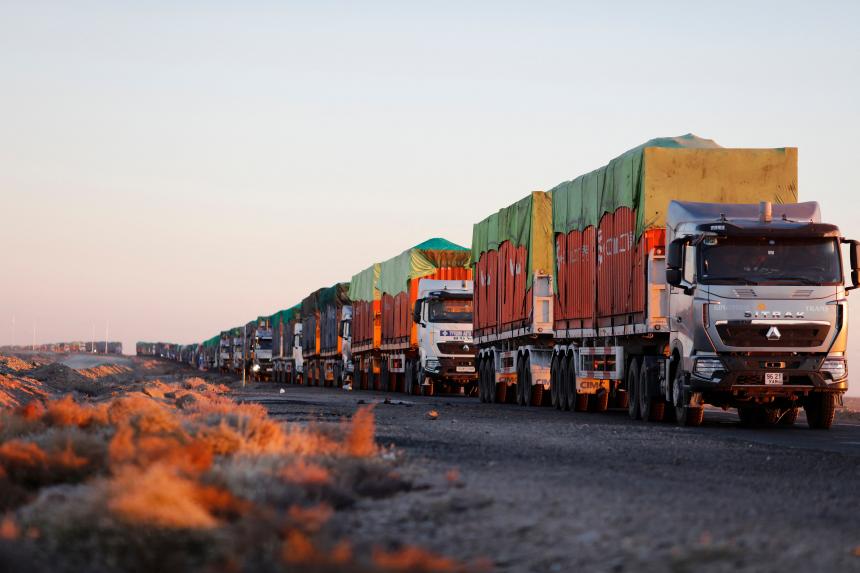BEIJING (CAIXIN GLOBAL) – Local governments in China have closed a number of highways to curb the spread of the Omicron variant, raising concerns about supply chain disruptions and drawing a rebuke from the central government.
The highway restrictions are the latest example of how local governments have scrambled to contain the country’s worst Covid-19 outbreak in two years with stricter measures, some of which have been criticised on the grounds of inconsistency and rigidity.
With market participants calling for consistent and flexible highway transport policies, the Ministry of Transport said in a Saturday (April 9) statement that local governments should not impose unreasonably strict restrictions and “one-size-fits-all” measures on highway transportation. Policies for transport permits in different regions should be consistent, and local governments are forbidden from arbitrarily closing highway rest areas, the statement said.
At least a dozen provincial-level regions have imposed restrictions on local highways, including closing entrances and exits, closing rest areas, and setting up Covid-19 testing sites, according to government announcements and data from Amap, a Chinese online map platform.
On Sunday, Yiwu, a city in east China’s Zhejiang province and a foreign trade hub, announced it had closed six highway exits as part of its response to the outbreak. The city added three asymptomatic cases that day.
In Henan, a central province, the local government had closed 37 expressway rest areas as of last Thursday, local media reported. Shanghai, the country’s largest city struggling to fight an outbreak, has seen large swathes of highways being closed, according to Amap.
Some market participants and analysts have expressed concerns that highway curbs would disrupt supply chains, thus taking a toll on industrial production and consumer spending, as well as jeopardising the delivery of daily necessities in regions hit hard by Covid-19.
A staff member from a logistics company told Caixin that most of the company’s container truckers were either stuck on expressways and waiting for Covid-19 testing, looking for other highway routes, or turning back to where they started due to local governments’ highway travel restrictions. The inconsistent policies for entering and exiting highways across different regions have confused drivers, he said. “If highways are not smooth, logistics will not be smooth, and some supplies will not reach (consumers).”
In Shanghai and Suzhou, a city in Jiangsu province, goods transporters need a permit to drive on highways, a source at a sporting goods company said. One of the company’s shipments from a warehouse in Wuhan, a city in Hubei province, to Suzhou recently was intercepted on a highway because it had no permit, the source said.
Even if goods make it to Shanghai, they still face obstacles to getting delivered to households, such as shortages of delivery drivers and neighbourhood travel restrictions. Delivery staff must have permits to work, but since different neighbourhoods have different policies, some staff cannot leave the places they live in even if they have permits, a person at an online grocery firm told Caixin.
Last month, an index measuring the traffic of trucks that deliver goods dropped 2.6 per cent year-on-year, brokerage Sinolink Securities said in a note last week. The index in Shanghai and Jilin province, two regions suffering severe virus flare-ups, declined 6.8 per cent and 42.3 per cent, respectively.


